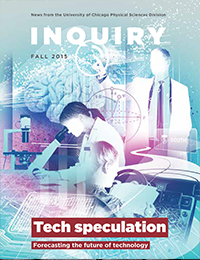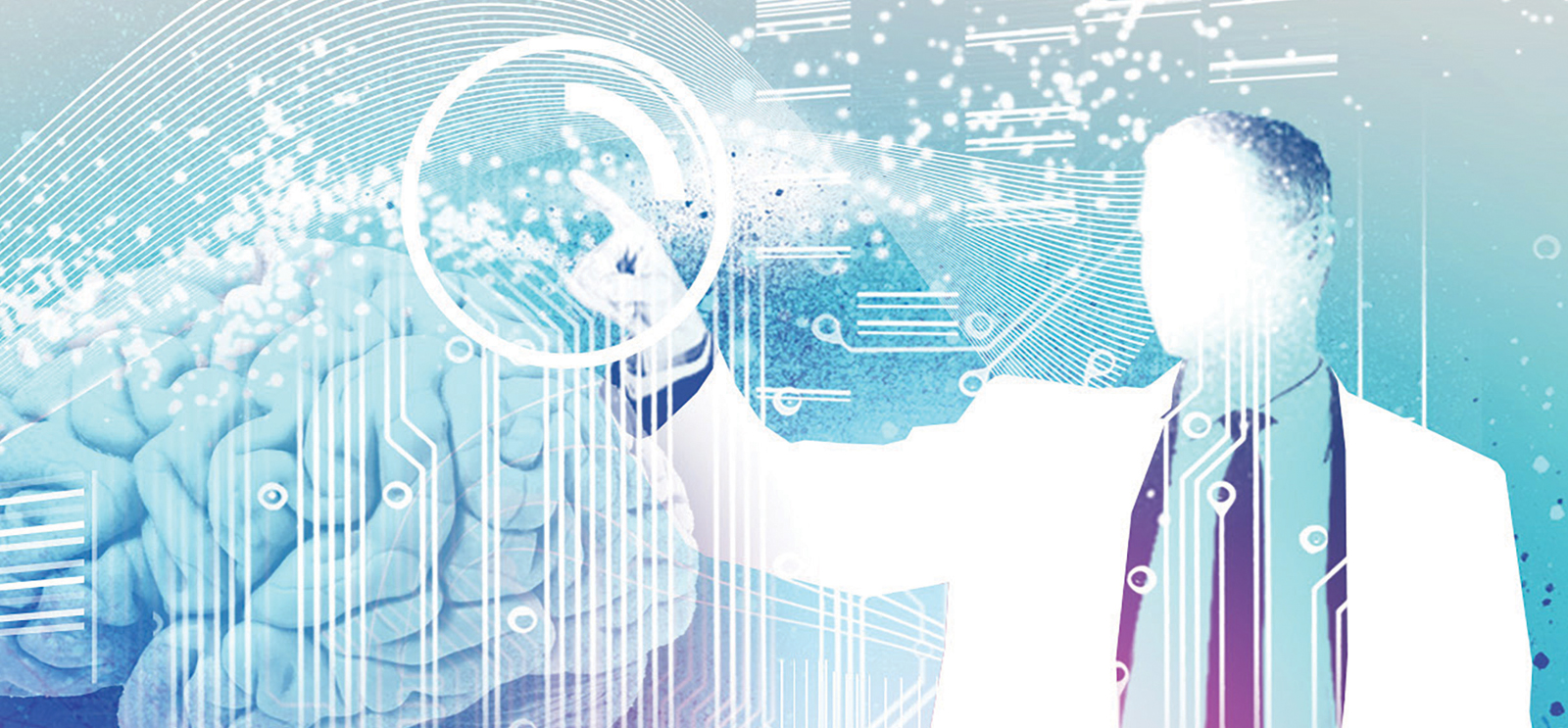(Illustration by Mario Wagner)

This article originally appeared in the Fall 2015 issue of Inquiry, the biannual publication produced for University of Chicago Physical Sciences Division alumni and friends.
We asked recently appointed computer scientists what fantastical, futuristic technology they’d like to see invented. Turns out some of their foresights aren’t so far off.
Quantum leap
Fred Chong, the Seymour Goodman Professor of Computer Architecture, and computer science lecturer
Matthew Wachs are eager to see advances in
quantum computing. “It’s the only technique that may provide exponentially powerful computation,” says Chong. Wachs compares it to a genie in a bottle: “Whenever a genie grants you a wish, the obvious strategy is to ask for infinite wishes. The kinds of breakthroughs that quantum computing would make possible would almost be like that.”
I, bionic
Associate professor
Shan Lu and assistant professor
Yanjing Li would like to see medical technology improved. Li envisions bionic body parts—implantable chips that could restore sight to the blind or speech to the mute. She cites the
blood-sugar-monitoring contact lens designed by Google and Novartis. “People are already looking at nonintrusive ways of integrating computer systems into your body, but in the future, it could be another level.”
Auto chauffeur
Assistant professors
Ravi Chugh and
Ariel Feldman look forward to
self-driving cars, “although given recent progress, perhaps that isn’t so fantastical any more,” says Feldman. Chugh predicts that self-driving cars combined with public transit would lead to safer and more energy- and time-efficient travel. “The economic and social challenges to overcome, however, are probably harder than the technical ones.”
Sentient Siri
The technology that assistant professor
Aaron Elmore, SM’09, most wants developed “has to be the
Star Trek computer.” His vision differs from
Apple’s Siri and
Amazon’s Alexa in its ability to contextualize. He wants to have a natural conversation with the computer, where his questions are answered and refined by further discussion.
Transcendence
Assistant professor
Andrew Drucker hopes for “direct
computer/brain interfaces that use the brain's plasticity to intimately link human and machine intelligence,” leading to new kinds of virtual experiences and telepathy. He’d be even happier “to see the benefits of existing technologies shared more equitably—for example, to see more of the wealth generated by our computers going to the people who assemble them.”
“I know kung fu.”
Diana Franklin, director of computer science education at the
Center for Elementary Mathematics and Science Education, would like to see “personalized, automated learning systems to support students in all subjects, including math, art, computer science, history, language.” Though not exactly
Matrix-style downloadable education, this would “assist teachers in reaching students with wide variance in background, knowledge, learning styles, and personal interests.”



